Contents
- 1 Infrastructure and Facilities
- 2 Stadium Construction and Renovation
- 3 Transportation Infrastructure
- 4 Accommodation Facilities
- 5 Fan Zones and Entertainment Venues
- 6 Security and Safety Measures
- 7 Sustainability Initiatives
- 8 World Cup in Saudi Arabia Economic Impact
- 9 Tourism Revenue
- 10 Job Creation
- 11 Business Opportunities
- 12 Promotion of Investment
- 13 Promotion of Sports and Recreation
- 14 Legacy Benefits
- 15 Cultural Exchange and Diplomacy of World Cup in Saudi Arabia 2034
- 16 Cross-Cultural Interaction
- 17 Promotion of Saudi Culture
- 18 Global Collaboration
- 19 Soft Power Diplomacy
- 20 Saudi World Cup Tickets
The decision to host the World Cup in Saudi Arabia marks a historic milestone for the country and the broader Middle East region. It will create a significant shift in the global perception of Saudi Arabia as a destination for major international events, showcasing the country’s growing influence on the world stage.
Infrastructure and Facilities
The country’s infrastructure investment to host the World Cup in Saudi Arabia encompasses a wide range of projects aimed at enhancing the country’s capacity to accommodate the influx of visitors, provide top-notch facilities, and ensure the smooth operation of the tournament. Here’s an overview of the critical areas of infrastructure investment:
Stadium Construction and Renovation
Saudi Arabia has invested heavily in building and upgrading stadiums to meet FIFA standards for hosting World Cup matches. These stadiums are equipped with state-of-the-art facilities, including seating, lighting, and security systems, to provide a world-class experience for players and spectators alike.
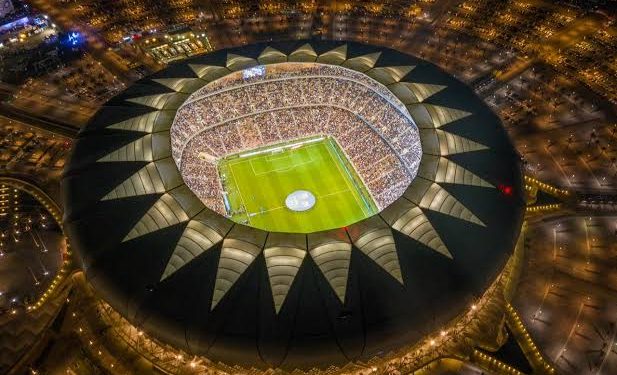
Transportation Infrastructure
To make it easier for spectators, teams, and officials to move around during the competition, large expenditures have been made on the infrastructure supporting transportation. This includes expanding and improving road networks, developing public transportation systems such as metro lines and bus services, and upgrading airports to accommodate increased air traffic.
Accommodation Facilities
Saudi Arabia has invested in expanding and upgrading its hotel and accommodation facilities to accommodate the influx of visitors during the World Cup. To accommodate the demand for housing during the event, additional hotels, resorts, and serviced apartments are being built. Visitors may like to check furnished apartments in Riyadh or a house for rent in Riyadh in search of accommodation during their visit.
Fan Zones and Entertainment Venues
Saudi Arabia has developed fan zones and entertainment venues to create a vibrant atmosphere for fans to gather, socialize, and enjoy the World Cup experience. These areas have big screens, food and beverage stalls, live entertainment, and other amenities to enhance the fan experience. Shopping malls in Riyadh are an example of these entertainment venues.
Security and Safety Measures
Saudi Arabia’s first concern is making sure that participants, officials, and spectators are safe and secure. The country has invested in advanced security systems, surveillance technology, and personnel training to prevent and respond to security threats during the tournament.
Sustainability Initiatives
In line with its commitment to sustainability, Saudi Arabia has incorporated eco-friendly design principles and technologies into its infrastructure projects for the World Cup. To reduce the tournament’s environmental effects, this includes utilizing green building techniques, water-saving techniques, and renewable energy sources.

World Cup in Saudi Arabia Economic Impact
Hosting the World Cup can have significant economic impacts on Saudi Arabia, both in the short term during the event itself and in the long term, due to increased tourism, investment, and economic development. Here are some ways in which hosting the World Cup can benefit the Saudi economy:
Tourism Revenue
Hosting the World Cup attracts many international visitors, leading to a surge in tourism revenue. Visitors spend money on accommodation, food, transportation, entertainment, and souvenirs, boosting various sectors of the economy.
Job Creation
The World Cup creates employment opportunities across various sectors, including construction, hospitality, tourism, transportation, security, and event management. This influx of job opportunities benefits both skilled and unskilled workers, helping to reduce unemployment and improve living standards.
Business Opportunities
The World Cup presents lucrative business opportunities for local companies and entrepreneurs. From supplying goods and services to catering to the needs of visitors and sponsors, businesses across various industries can capitalize on the increased demand generated by the tournament.
Promotion of Investment
Hosting the World Cup enhances Saudi Arabia’s global visibility and attractiveness as an investment destination. The exposure received from organizing an event of this caliber can attract foreign investment in vital economic areas, including real estate, travel, infrastructure, and technology.
By leveraging the momentum of the tournament, Saudi Arabia can position itself as a dynamic and ideal for real estate investment and development on the global stage. Visitors will start looking for the best neighborhoods in Riyadh for their real estate investments in Riyadh and all over Saudi Arabia. They may start looking for apartments or a villa for sale in Jeddah.
Promotion of Sports and Recreation
The World Cup promotes sports and recreation in Saudi Arabia, encouraging the local population to participate in football and other sports. This focus on sports development can have long-term health and social benefits, including promoting an active lifestyle and fostering community engagement.
Legacy Benefits
The infrastructure and facilities built or upgraded for the World Cup in Saudi Arabia leave a lasting legacy for Saudi Arabia. These assets can continue to generate economic benefits long after the tournament concludes, contributing to the country’s overall development and competitiveness on the global stage.
Cultural Exchange and Diplomacy of World Cup in Saudi Arabia 2034
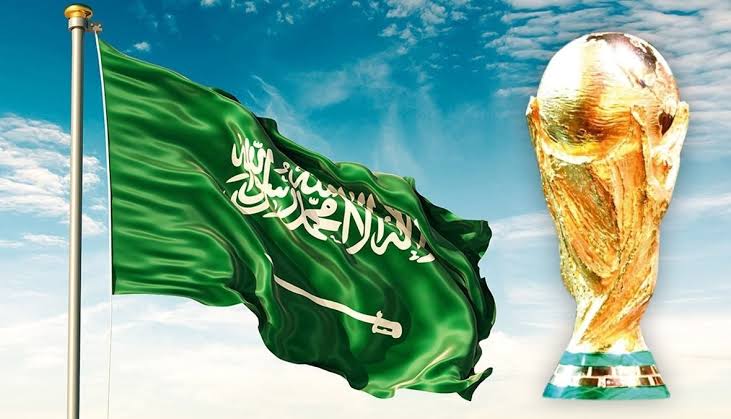
Cross-Cultural Interaction
The World Cup in Saudi Arabia brings together people from diverse cultural backgrounds, fostering cross-cultural interaction and exchange. Fans, players, officials, and media representatives worldwide converge in Saudi Arabia, providing a platform for cultural dialogue, understanding, and appreciation.
Promotion of Saudi Culture
Hosting the World Cup in Saudi Arabia allows it to present its rich cultural legacy, customs, and friendliness to the world. Saudi Arabia can promote its unique identity and values to a global audience through various cultural events, exhibitions, and activities organized alongside the tournament.
Global Collaboration
Hosting the World Cup in Saudi Arabia requires collaboration and cooperation between Saudi Arabia and various international stakeholders, including FIFA, national football associations, sponsors, broadcasters, and participating teams. This collaboration fosters diplomatic relations and enhances Saudi Arabia’s standing in the international community.
Soft Power Diplomacy
Hosting the World Cup in Saudi Arabia enhances Saudi Arabia’s soft power and global influence by projecting a positive image of the country to a worldwide audience. Through effective branding, messaging, and cultural diplomacy initiatives, Saudi Arabia can leverage the World Cup as a platform to enhance its reputation and influence in the international arena.

Saudi World Cup Tickets
Tickets to the World Cup in Saudi Arabia will be made available through official channels, such as FIFA’s official ticketing website, as well as authorized ticketing partners and outlets in Saudi Arabia and worldwide. World Cup tickets usually come in a variety of categories to suit a range of tastes and price points. These categories may include standard seats, premium seats with enhanced amenities, hospitality packages, and special packages for families or groups.
While prices for standard tickets may be relatively affordable, premium tickets and hospitality packages are likely to be more expensive, offering additional perks and privileges. The tickets to the World Cup in Saudi Arabia will likely feature advanced security features and authentication measures to prevent ticket fraud and ensure the event’s security. This may include barcodes, RFID chips, or other digital technologies to verify the authenticity of tickets and prevent unauthorized resale or duplication.
Overall, Saudi Arabia’s infrastructure investment for hosting the World Cup in Saudi Arabia reflects its commitment to delivering a successful and memorable event while leaving a lasting legacy of development and progress for the country and its people.
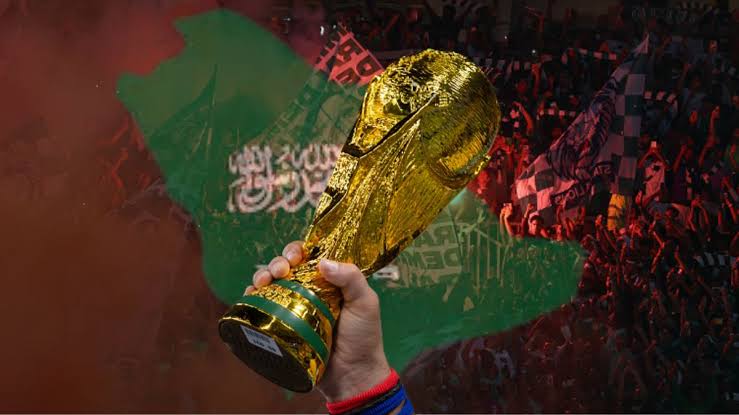

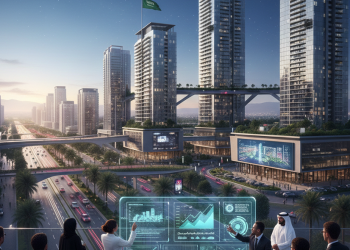
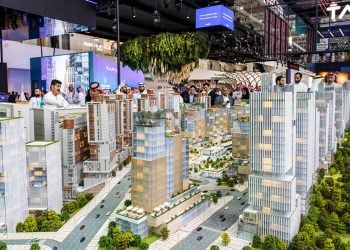
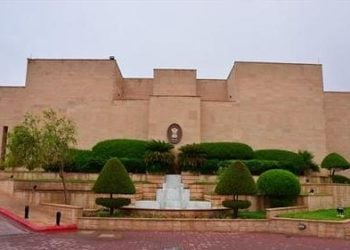
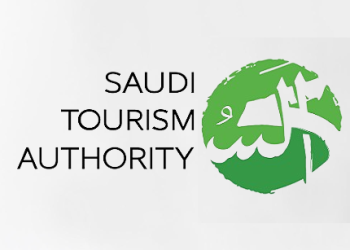
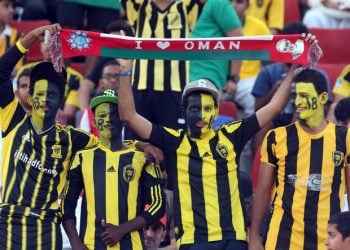


Discussion about this post